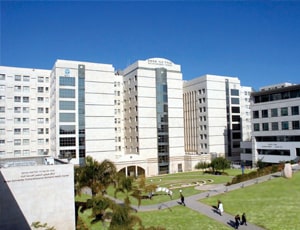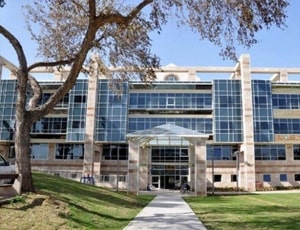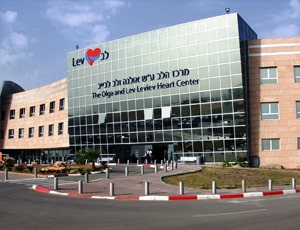The average cost of Cervical Cancer Treatment in Herzliya approximately starts from USD 14000
Treatment cost

Apart from in-detail treatment procedures available, Herzliya Medical Center located in Herzliya, Israel has a wide variety of facilities available for International Patients. Some of the facilities which are provided by them are Accommodation, Airport Transfer, Interpreter, SIM, TV inside room. Also listed below are some of the most prominent infrastructural details:


Rabin Medical Center located in Petah Tikva, Israel is accredited by JCI. Also listed below are some of the most prominent infrastructural details:

Kaplan Medical Centre located in Rehovot, Israel is accredited by JCI. Also listed below are some of the most prominent infrastructural details:

Tel Aviv Sourasky Medical Center -Ichilov Hospital located in Tel-Aviv, Israel is accredited by JCI. Also listed below are some of the most prominent infrastructural details:

Sheba Medical Center located in Tel-Hashomer, Israel is accredited by JCI. Also listed below are some of the most prominent infrastructural details:

Assuta Hospital located in Tel-Aviv, Israel is accredited by JCI. Also listed below are some of the most prominent infrastructural details:
Cervical cancer is an abnormal growth of cancer cells that starts in the cervix. The cervix is the narrow part of the lower uterus. It is the entrance of the uterus, often referred to as the neck of the womb. Cervical cancer is the fourth most common type of cancer in women around the world. It is the fourth leading cause of death caused by cancer in women. However, the important thing to note is that cervical cancer is also one of the most preventable types of cancer and early diagnosis of the disease can improve the mortality rate amongst patients.
A dramatic reduction in cervical cancer occurrence is primarily due to the widespread use of advanced screening tests such as pap tests to detect cervical abnormalities and allow for early treatment.
Under normal circumstances, the ectocervix is covered with flat, thin cells called squamous cells, and the endocervix is made up of another kind of cells called columnar cells. The area where these cells meet is called the transformation (T) zone. The T zone is the most likely location for cervical cancer cells to develop.
A majority of cervical cancer cases occur because of a virus called human papillomavirus (HPV). HPV is a sexually transmitted virus. It can transfer through sexual contact with an infected male partner.
There are many types of the HPV virus and not all types of HPV cause cervical cancer. Some of the HPV may cause genital warts. Some other cervical cancer risk factors include smoking, weak immune system, oral contraceptives, and multiple pregnancies.
More than 90 percent of the cervical cancers are squamous cell carcinoma. The second most common type of cervical cancer is adenocarcinoma. Adenosquamous carcinomas or mixed carcinomas are some of the rare types of cervical cancer.
The treatment for cervical cancer may vary depending on the stage of the cancer, the patient's overall health, and other factors. Common treatment modalities include:
The recovery process and duration of hospital stays following cervical cancer surgery can vary depending on the type of surgery performed and individual factors. Here's a general overview:
It's very crucial to note that individual recovery experiences may vary, and some women may need more time for healing. After discharge, patients will be advised to follow up with their healthcare team for postoperative care, including monitoring for any signs of complications or infection. Throughout the recovery process, patients are often encouraged to:
Moreover, emotional and psychological support is crucial during the recovery period, and healthcare providers may recommend counseling or support groups to address any concerns or emotional aspects of the journey.
Ask your healthcare adviser for the best multiple options and choose the one that meets your expectations
On an average, Cervical Cancer Treatment in Herzliya costs about $14000. Many multispeciality hospitals which are JCI certified are approved to operate a Cervical Cancer Treatment in Herzliya.
Different hospitals have different pricing policy when it comes to the cost of Cervical Cancer Treatment in Herzliya. The top hospitals for Cervical Cancer Treatment in Herzliya covers all the expenses related to the pre-surgery investigations of the candidate. The comprehensive Cervical Cancer Treatment package cost includes the cost of investigations, surgery, medicines and consumables. Post-surgical complications, new findings and delayed recovery may have an impact on the total Cervical Cancer Treatment cost in Herzliya.
There are many hospitals that perform Cervical Cancer Treatment in Herzliya. The top hospitals for Cervical Cancer Treatment in Herzliya include the following:
Upon discharge from the hospital after Cervical Cancer Treatment in Herzliya, the patients are advised to stay for about 25 days for recovery. This is important to ensure that the surgery was successful. During this time, control and follow-up tests take place to check for medical fitness.
One of the topmost destinations for Cervical Cancer Treatment is Herzliya. It has a variety of accredited hospital, affordable cost of treatment and some of the best medical fraternity. However, some of the other popular destinations for Cervical Cancer Treatment include the following:
Apart from the Cervical Cancer Treatment cost, there are a few other daily charges that the patient may have to pay. The per day extra expenses in Herzliya per person are about 75 USD.
The average duration of stay at the hospital after Cervical Cancer Treatment is about 5 Days for proper care and monitoring. During the recovery, the patient is carefully monitored and control tests are performed to see that everything is okay. If required, physiotherapy sessions are also planned during recovery in hospital.
Out of all the hospitals in Herzliya, there are about 1 Hospitals best hospitals for Cervical Cancer Treatment in Herzliya. These hospitals have the required expertise as well as infrastructure available to handly patients who need Cervical Cancer Treatment. Additionally, these hospitals are known to comply with the international standards as well as local legal requirements for the treatment of patients.
Some of the most sought after doctors for Cervical Cancer Treatment in Herzliya are: